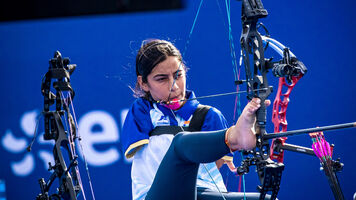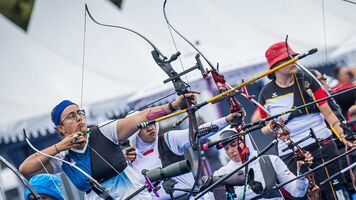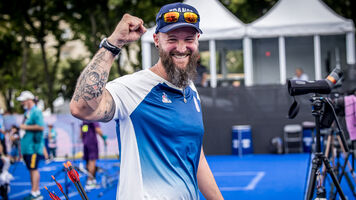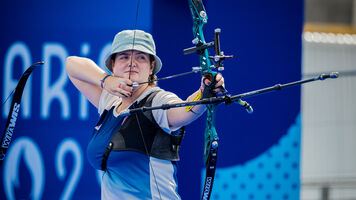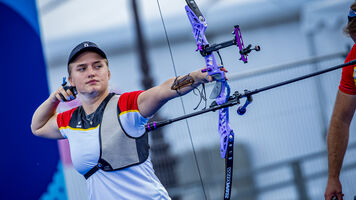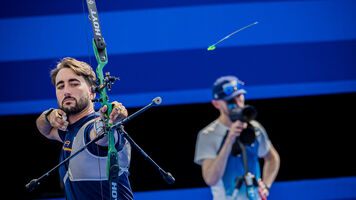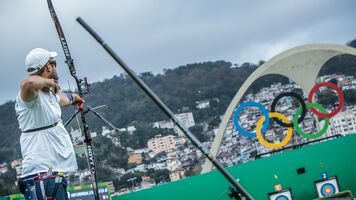Andrea Marcos’ balanced perspective helps process the pandemic
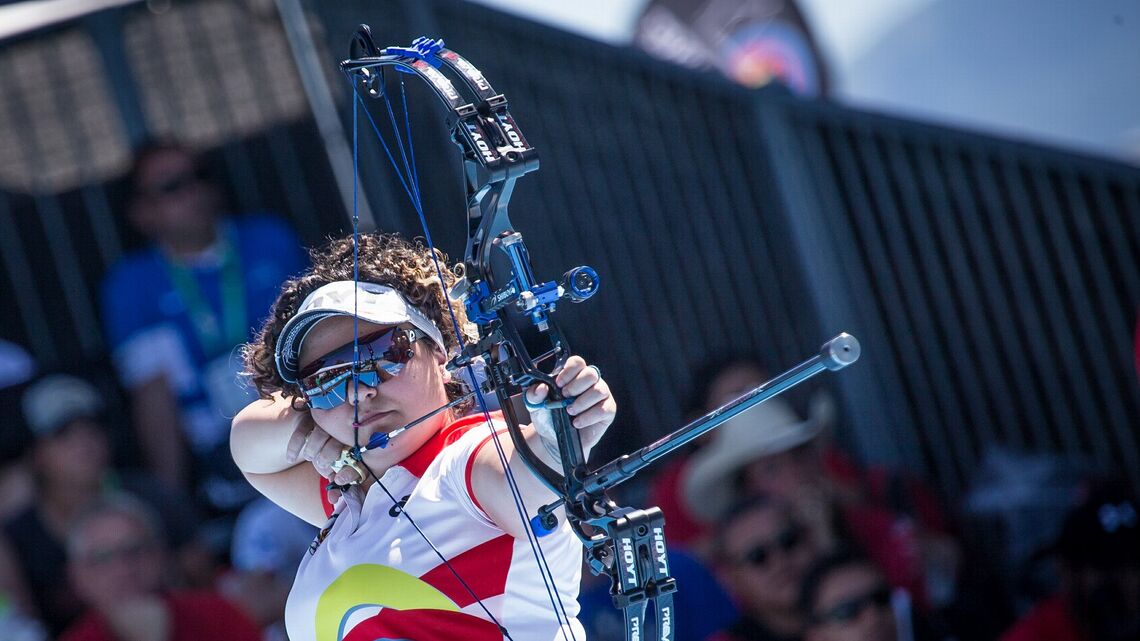
There’s more to life than archery.
It feels wrong to admit, and even worse to ignore. But against the backdrop of a pandemic that continues to overwhelm and affect the livelihoods of people across the globe, having perspective when weighing one's priorities can help to understand the magnitude of our current situation
Andrea Marcos knows better than most about the benefits of prioritising archery within the broader context of life.
The reigning European champion from Spain had a plan before archery – and she continues to balance her pursuits as an international athlete with her full-time career as a physiotherapist.
Marcos began shooting in earnest in her early 20s, combining compound archery with her university studies. It wasn't until afterwards that she joined the Spanish national team, in 2013.
Making time for archery has always required meticulous planning and attention to detail, she said. She often operates on little sleep, and she only competes in tournaments of a certain level – when her schedule allows for it.
While many of her contemporaries grew up immersed within the archery community, Marcos' comparatively unconventional introduction to the sport perhaps makes the 32–year–old better equipped than others to handle the disruption to their schedules imposed by COVID–19.
“Is it a job for me? No,” said Marcos, who works up to 10 hours per day in a small town near Leon, in the north of Spain. “There was a time in my life when I had the opportunity to focus on archery full time, but I didn't want the pressure of finishing in a certain place so that I could pay for my life.”
This is not to discredit Marcos’ passion for her sport.
Making time for both archery and physiotherapy simply offers balance in her life, the two pursuits forming a symbiotic relationship that wouldn't work as well independently.
“Archery teaches you mental discipline: ordering your thoughts, knowing when it's time to laugh and when it's time to focus,” said Marcos. “Of course, that kind of discipline carries over into other parts of life, too.”
Marcos lives in the same world as the rest of us – though perhaps with the potential to accomplish even more. She is, at once, acutely aware of the larger tasks being asked of her while completely enraptured by the thrill of competing on an international stage.

“When you're on the shooting line with a bow in your hand – it's indescribable,” she said. “It's when I feel like myself the most. I'm really fascinated by the feelings I get when I shoot at a high level.”
The dissonance is useful. Archery allowed her to pursue her career in physiotherapy, and it's because of her success that she has received meaningful and substantive emergency funding to weather the financial loss to her business she’s suffered as a result of the pandemic.
In July, Marcos was announced as one of the 35 international athletes who received grants from World Archery and the Foundation for Global Sports Development's COVID–19 fund. A total of 190,000 USD was distributed.
Without the funding, she said, it's unclear how she would have managed to supplement the substantial amount of income she has lost.
“The World Archery grant has been fundamental to support this year economically,” she explained, who had to close her clinic for two months while still accruing expenses. “Closing for a long time can be a death sentence for a small business, so I'm really happy to have the comfort of surviving this year.”
With her finances in order, Marcos was able to focus her attention toward claiming first place at the 2020 Antalya International Challenge, archery’s first international event since the start of the pandemic.
Held earlier in October, the tournament ended a competition hiatus that began back in March.
Her success aligned perfectly with that of the event, which served as an encouraging sign for international archery moving forward as the sport attempts to return to something resembling normalcy before 2021.
While the world is still in flux in many ways, Marcos can take solace in her ability to adapt at the moment. And look towards continuing her career – both sporting and not – that has already brought so much.
“Above all else, I think archery teaches you the mental discipline you need if you want to go further,” she said.
“How far am I going to go? Well, I don't know that. Nobody does. But I do believe that I have the tools that will take me far. Whether I have the ability to make this a reality, we will see in the future.”




